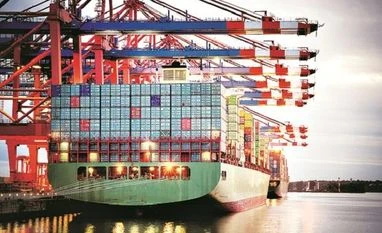Large trade deficit with Switzerland and its decision to remove import duties on almost all industrial goods for all countries starting January 1 would limit gains for India under the proposed trade agreement with EFTA bloc, a report said on Monday.
The report by economic think tank GTRI said the trade agreement in the current format will not help Indian exports and will result in higher imports and wider trade deficit.
India and the European Free Trade Association (EFTA) are negotiating a free trade agreement, officially dubbed as Trade and Economic Partnership Agreement (TEPA) with a view to boosting economic ties.
FTA (free trade agreement) negotiations were initiated in January 2008.
EFTA members are Iceland, Liechtenstein, Norway, and Switzerland.
"The Indian side faces challenges in achieving a balanced outcome in the agreement with EFTA. There are concerns due to the large trade deficit in favour of EFTA, Switzerland's new policy of allowing tariff-free entry for all industrial goods from any country, and limited gains for India in services," the Global Trade Research Initiative (GTRI) said.
More From This Section
It added that these factors raise questions about the fair distribution of benefits to India from the FTA with EFTA.
The report added that India must navigate these negotiations with a focus on balancing trade, protecting domestic interests, and securing a fair and beneficial agreement.
Switzerland's decision to eliminate import duties on all industrial goods for all countries starting January 1, 2024 changes the dynamics of the negotiations.
This tariff removal does not extend to fishery and agricultural products.
"This decision by Switzerland has profound implications for India's gains from the ongoing India-EFTA free trade agreement," GTRI Co-Founder Ajay Srivastava said.
He said that industrial goods, which accounted for 98 per cent of India's USD 1.3 billion merchandise exports to Switzerland in FY2023, are directly impacted.
Additionally, exporting agricultural produce to Switzerland remains challenging due to the complex web of tariffs, quality standards, and approval requirements, he said.
" EFTA, including Switzerland, has shown no inclination to make agriculture tariffs zero on most basic agricultural produce. Consequently, with zero industrial tariffs and the difficulty in exporting agricultural produce to Switzerland, India's prospective gains in merchandise exports are effectively nullified," Srivastava said.
The report also said that gold, accounting for 80 per cent of India's imports from Switzerland, is a critical factor.
If the agreement does not include gold, it may not meet a WTO (World Trade Organization) provision for FTAs to have duty cuts on substantial trade.
Switzerland has large historical accumulations of gold and it primarily refines imported gold. Such gold cannot meet the Rules of Origin conditions of minimum value addition of even 5 per cent.
It also said that Switzerland may insist upon replacing value addition or tariff transformation conditions with specific process like refining condition and due to this India should tread cautiously.
In 2022-23, India's imports from Switzerland stood at USD 15.79 billion, in stark contrast to its exports of USD 1.34 billion, leading to a substantial trade deficit of USD 14.45 billion.
Overall gains in merchandise trade will be negative, as India will have to cut tariffs on substantial imports from Switzerland, it said.
Further, it said EFTA countries' request for TRIPS (Trade Related Aspects of Intellectual Property Rights) plus protection for strengthening of Intellectual Property Rights (IPRs), especially patents and copyrights in India will conflict with India's domestic regulations.
In the services sector, the report said that the agreement aims to open up sectors like IT, finance, tourism, and education, allowing Indian and EFTA service providers to operate in each other's markets with fewer restrictions.
"However, the potential gains in services are limited, as countries typically agree to bind existing levels of policy commitments, implying a continuation of the status quo. Switzerland's stance on India's request for priority visas for Indian professionals could prove to be another sticking point," it said.
India's main imports from Switzerland include gold (USD 12.6 billion), machinery (USD 409 million), pharmaceuticals (USD 309 million), coking and steam coal (USD 380 million), optical instruments and orthopaedic appliances (USD 296 million), watches (USD 211.4 million), soybean oil (USD 202 million), chocolates USD 7 million).
EFTA would request India to eliminate tariffs on all the above items.
In 2022-23, India's imports from EFTA were significantly higher than its exports, leading to a trade deficit of USD 14.8 billion.
)